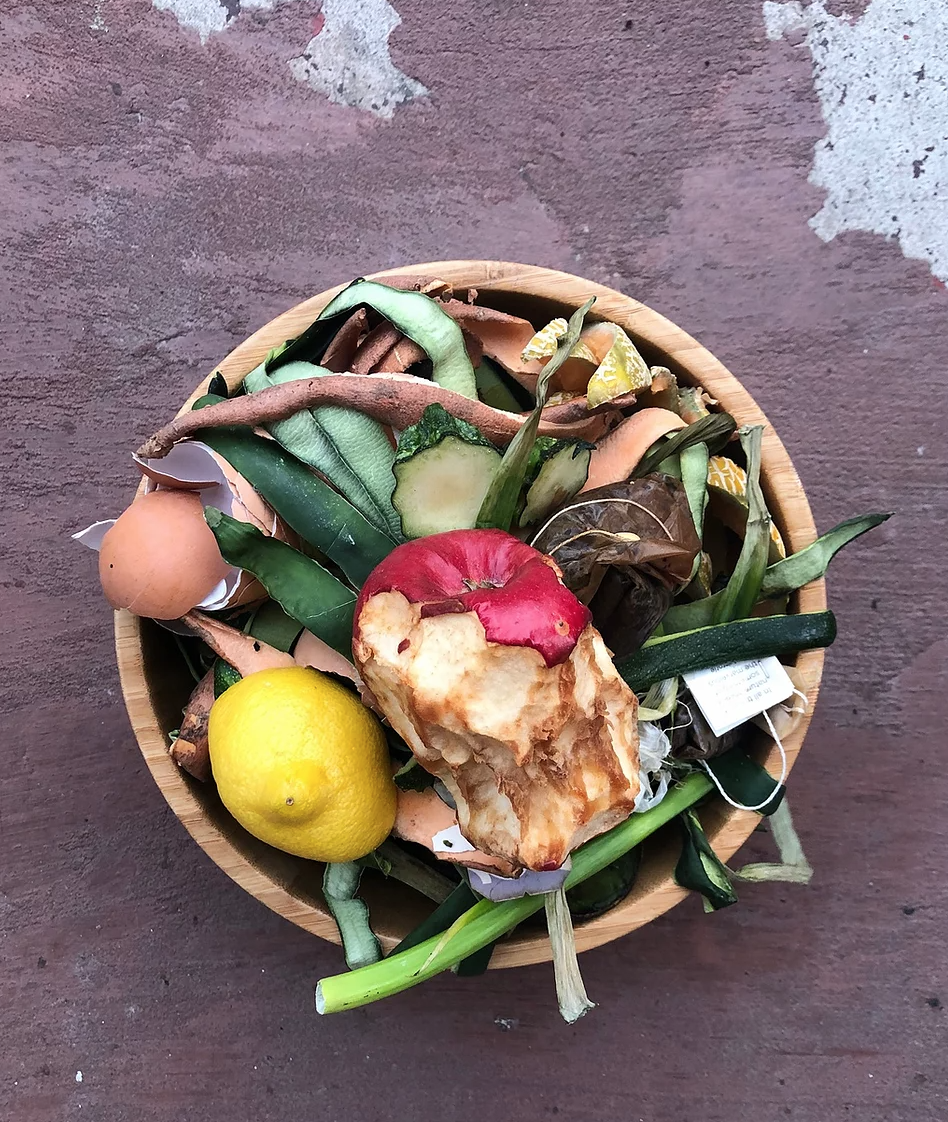Transforming Waste Relations: an interview with Ventura’s Queen of Compost
Wasted food is the single biggest occupant in American landfills, the Environmental Protection Agency has found.
In more contextual terms, Americans throw away almost as much food as they eat. Roughly 50 percent of all produce in the United States is thrown away—some 60 million tons (or $160 billion) worth of produce annually.
Once organic waste makes it to the landfills, it generates methane, a potent greenhouse gas.
Culturally, our appetite for organic, clean foods and knowledge about our food systems seems to be growing, but knowing where and what happens once food gets tossed is rare. Moreover, our traditional waste management systems are failing us.
Since its inception in 2019, Queen of Compost has been working hard at changing the course of waste management in her Ventura hometown. Camila began with a vision to mitigate some of the negative effects of climate change and empower her community to take impactful action in their own lives. Her vision has since turned into reality and has evolved into a budding movement that is changing Ventura’s relationship to the cycles of food and waste, and has diverted over 7,324 lbs of food waste from going to the landfills in Ventura County.
Sustainable Ventura joins Camila Guzman, Ventura’s own self-appointed “Queen of Compost” in discussing the magic of compost, the abundance it creates and the steps she is taking to revolutionize Ventura’s relationship to food waste management.
Name: Camila Guzman
Founder of: Queen of Compost
Location: Ventura, CA
What is compost?
Compost is a verb and a noun. As a noun, compost is any organic materials that will decompose through the process (verb) of composting. As a verb, Compost is the process of decomposition. It is the physical act of recycling nutrients back into soil. This involves some physical labor to turn food/organics waste into nutrient rich soil amendment.
Why is compost important?
Composting is important because it diverts food waste from going to the landfill, it improves overall soil quality, which improves food production and yield. Compost amends soil which helps manage diseases by supplying beneficial microorganisms to the soil for plant root uptake. Soils with high organic matter content will sequester greenhouse gases from the atmosphere, too!
What inspired you to embark on the journey of making compost your passion?
There is a special magic that happens when you compost. I love watching food transform into humus/black gold. For me, composting is the only thing that makes sense when it comes to eating food and growing food. The community aspect is extra special because of how soil connects us all to each other. I want the community to have access to the composting process, so they can contribute to the good cause.
How does one begin to compost? Can you compost if you live in an apartment?
First, pick a bin to store your food waste. Then, pick a location for your compost. Apartments can benefit from worm bins, bokashi compost, and residential pick-up services.
Why not just rely on mainstream waste management systems for our food scraps?
Mainstream waste management ships all organics waste to Kern County to be processed in a mega huge composting facility. The community compost movement helps to decentralize where our food waste ends up so we can keep it in our local soils right underneath our feet.
What is the relationship between food and compost?
Food for people is also good nutrients for soil!
Tell us a bit about the compost awareness/system you’ve brought to Ventura?
The community compost project I started in Ventura is an effort to make composting accessible and available for everyone in the community. We educate volunteers and empower community members to make a positive impact every day to mitigate against the negative effects of climate change.
How many businesses are composting with you in Ventura?
Pre-Covid we had about 4-5 local small businesses participating. We lost all their business, however, post-covid. Now, we are focused on small-scale residential composting.
How many individuals are composting with you in Ventura?
Pre-covid, we hosted food scrap drop off stations, and had a lot of success of reaching 15-20 individuals each week. Currently, Queen of Compost serves 35 households, which is about 60-90 individuals.
Your greatest hopes and aspirations for our community in relation to composting?
That everyone sees the value in recycling food waste back into our soils. My hope is that every yard incorporates elements of edible landscape.
What is your ideal scenario for how our community handles waste relations?
More community empowerment through community compost hubs. Each neighborhood would have a place they can walk to drop off scraps into compost.
Is there a link between compost and climate change?
100% YES! Composting improves organic matter in soil, which improves soil quality as well as sequesters harmful greenhouse gases from the atmosphere back into the soil where it remains. Diverting food waste from landfills will help improve soil health therefore reduce the need for pesticides.
The Queen of Compost has diverted over 7,324 lbs of food waste from going to the landfills in Ventura County since 2019.
“The community compost movement helps to decentralize where our food waste ends up so we can keep it in our local soils right underneath our feet. ”
To learn more about the Queen of Compost visit her site.

